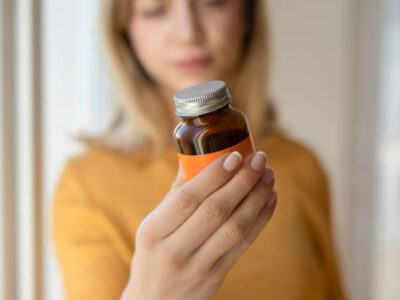The CDC says Alcoholics Anonymous members who have experienced Covid fatigue can now drink without loosing their clean and sober time or having to start a new clean date or sobriety anniversary!
Just to be clear, this IS an Orson Wells War of the Worlds-like statement from me, an addiction psychologist, as a joke to ad to the humor and memes following the CDC’s December 27th 2021 statement that the general population can shorten its isolation and quarantine period. A January 1st 2022 Forbes article described the flurry of jokes and memes following the CDC’s statement.
For example:
For those of you too young to know about the radio play broadcast from Mercury Theater in 1938 based on an H. G Wells novel and narrated and directed by Orson Wells, he panicked listeners by announcing as part of the fictional story that aliens were invading earth. People were truly scared. Covid, abstinence and recovery are no joke. But we shouldn’t lose our sense of humor.
While standards and ethics in broadcasting have come a long way, truth and science in the media is still suspect as it should be. The CDC’s change is science and evidence-based through demonstrations that the bulk of SARS-CoV-2 transmissions occur early on during the course of illness, in about the 1-2 day period prior to symptom onset and up to 3 days afterwards.
These data aside and your political leanings, beliefs, and feelings about the CDC not-withstanding, sobriety dates, clean time, and abstinence are extremely personal and need to be defined by each individual themselves.
These definitions don’t really lend themselves easily to empirical science.
Here are some Do’s and Don’ts:
- Don’t let anyone tell you that you can and cannot drink, when or how much
- Do do your due diligence to understand the importance of abstinence and sobriety.
- Don’t drink when you are feeling down, angry, lonely or in any sort of bad mood.
- Do understand and respect other people’s differences in their personal decision to define their own abstinence and recovery. One person’s recovery might be defined by abstinence from drugs like heroin though might include medical marijuana. Another person might feel threatened by relapse if they violate their abstinence with mouthwash, vanilla extract, Kombucha, non alcoholic beer (because it actually contains trace elements of alcohol) or a dessert with liquor even if it has been cooked and essnetially burned off.
- Don’t confuse abstinence with recovery. You can be clean, sober and abstinent and not working on yourself or on the right road to recovery and headed for a relapse. Likewise one may not be entirely abstinent but might be engaged in healthy recovery.
- Do talk to as many trusted people as you can about your sobriety status and gather their opinions, ideas and beliefs about what it means to be a recovering person or a person working towards Harm Reduction.
- Do learn and investigate the definitions provided by organizations such as the National Institutes of Health and the National Institute on Alcohol Abuse and Alcoholism on low risk drinking, alcohol use disorders, standard drinks and safe levels of drinking.
- Don’t lose your sense of humor in the recovery process. Recovery is hard enough, laughter and a gentle touch will go along way in making recovery fun and meaningful. Humor, social connection and laughter are reasons alone to experiment with sobriety and abstinence.
- Do ask your doctor if abstinence might be right for you. She might help you with resources and connections to the millions of friends out there whom you haven’t yet met who choose abstinence and recovery each and every day.
You may also be interested in reading more about:






